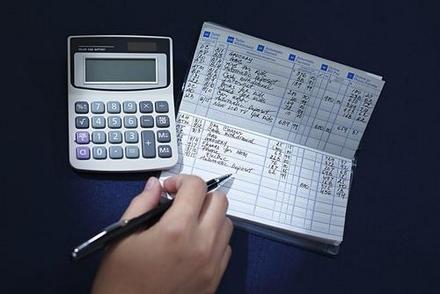TELEPHONES ANSWERED 24 HOURS A DAY
Bad Checks Can Lead to Criminal Prosecution
 The 2002 film Catch Me If You Can tells the dramatized story of Frank Abagnale Jr. who, over the course of several years, wrote thousands of dollars in bad checks while avoiding local and federal authorities. Abagnale eventually progressed into other types of confidence schemes, but they all began with passing bad checks. Although he was eventually caught and has since gone to work assisting the FBI in tracking and preventing crimes of fraud, his story often raises questions about how bad checks may be prosecuted.
The 2002 film Catch Me If You Can tells the dramatized story of Frank Abagnale Jr. who, over the course of several years, wrote thousands of dollars in bad checks while avoiding local and federal authorities. Abagnale eventually progressed into other types of confidence schemes, but they all began with passing bad checks. Although he was eventually caught and has since gone to work assisting the FBI in tracking and preventing crimes of fraud, his story often raises questions about how bad checks may be prosecuted.
Bad Checks
Most people realize that a check is a financial instrument containing an unconditional order for the signer’s bank to pay a specified sum to the listed payee. As a signed and dated document, a check represents a bill of exchange. Put in simple terms, when you write a check, you order to bank to pay the designated amount to the intended recipient if and when they present the check to the bank for payment.
If the signer does not possess sufficient funds at the designated financial institution, the order to issue payment cannot be honored when presented. The check is returned to the payee, who typically incurs a fine for the returned or, as commonly called, “bounced” check. Once a check has been returned twice, at least seven days apart, it is assumed to be a bad check, and the signer may be subject to prosecution.
Deceptive Practice
Under Illinois law, writing a bad check falls under a category of illegal activity known as deceptive practices. This includes using stolen or counterfeit checks, and checks drawn on a non-existent bank or institution. Criminal charges may be filed against the signer if he or she fails to act on a notice of the returned check within seven days. While the law specifies that the signer must know that the check will not be paid, it also permits the court to infer that the lack of funds may constitute sufficient knowledge, especially when the signer fails to make alternate arrangements upon receiving notice.
A single count of deceptive practice for a bad check is prosecutable as a Class A misdemeanor for a first-time offender if the check was for less than $150. A subsequent offense, a bad check of more than $150, or multiple checks exceeding that amount within 90 days may be charged as Class 4 felony.
Legal Help Is Available
If you are facing criminal charges related to bounced or bad checks, do not delay. Contact an experienced criminal defense attorney in Chicago today. With our knowledge of the law and familiarity with the court system, we can help you explore your options on minimizing the charges and their negative impact to your life. Call 312-629-0669 to schedule your free initial consultation.




